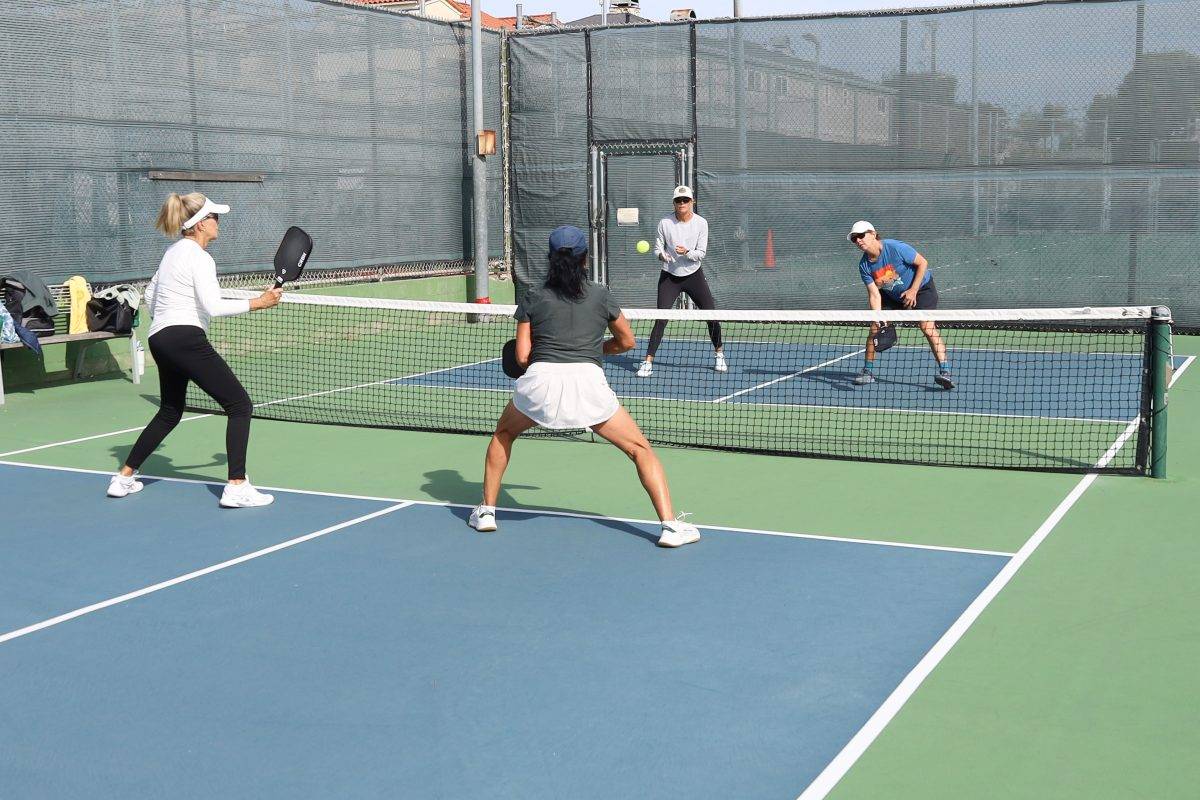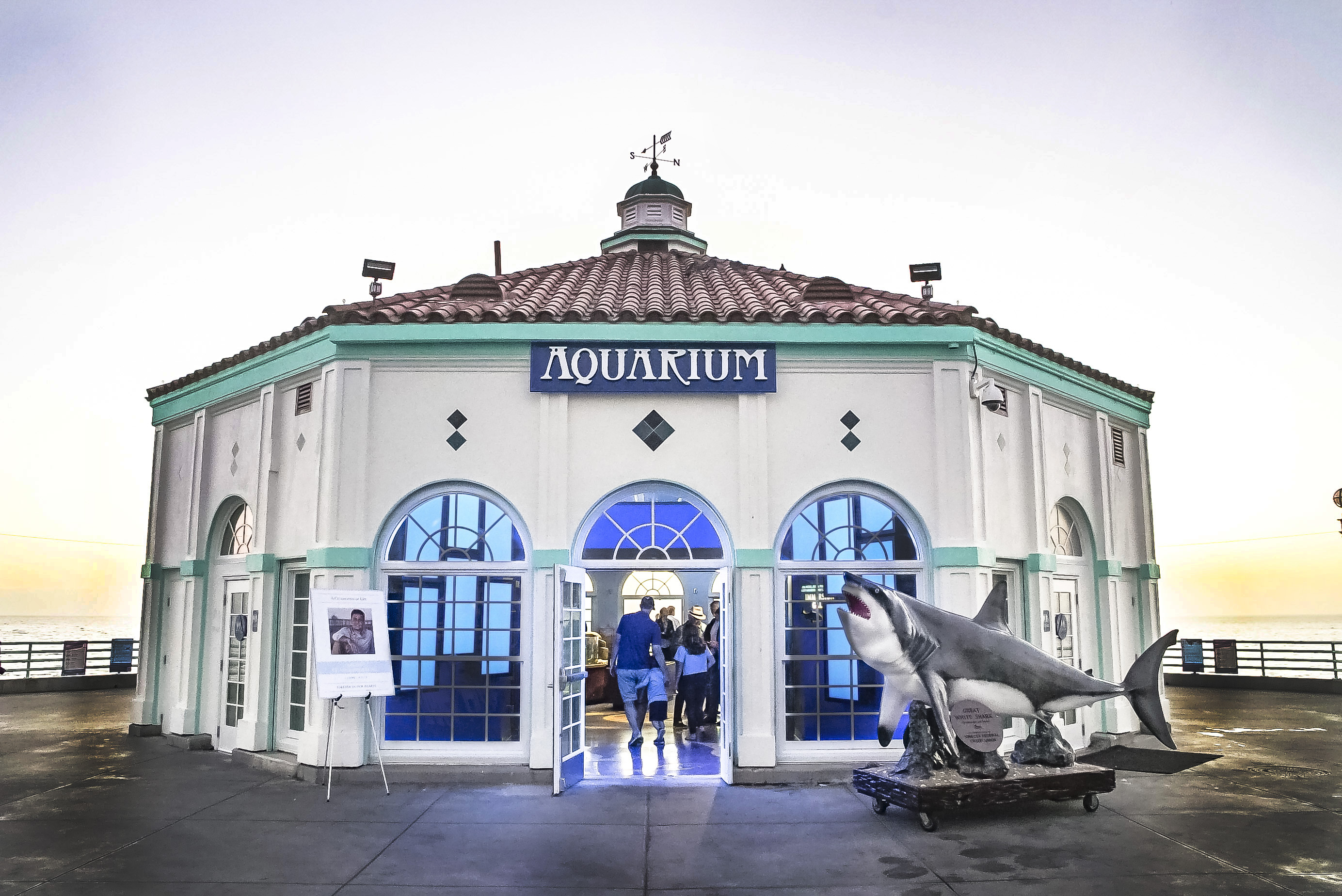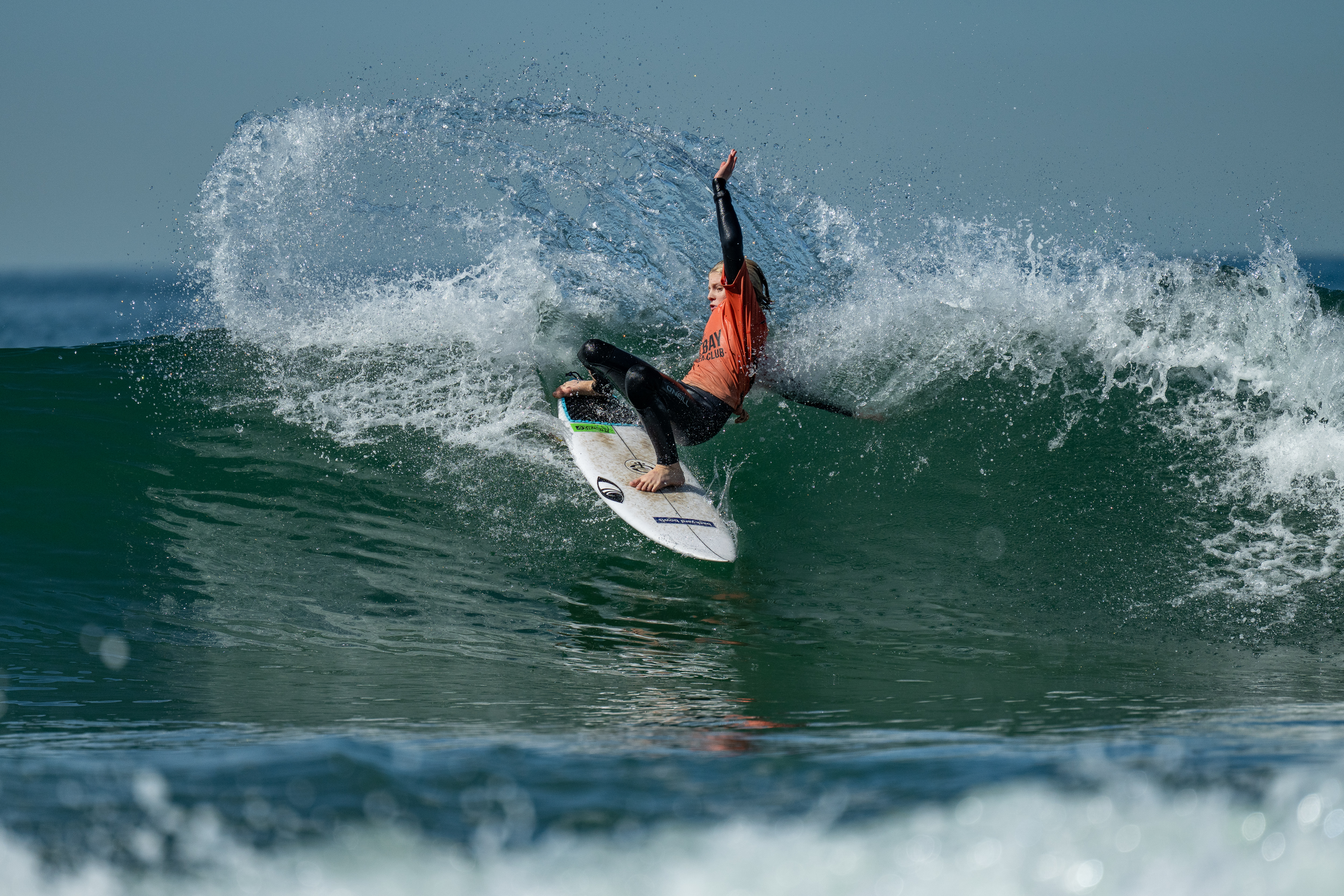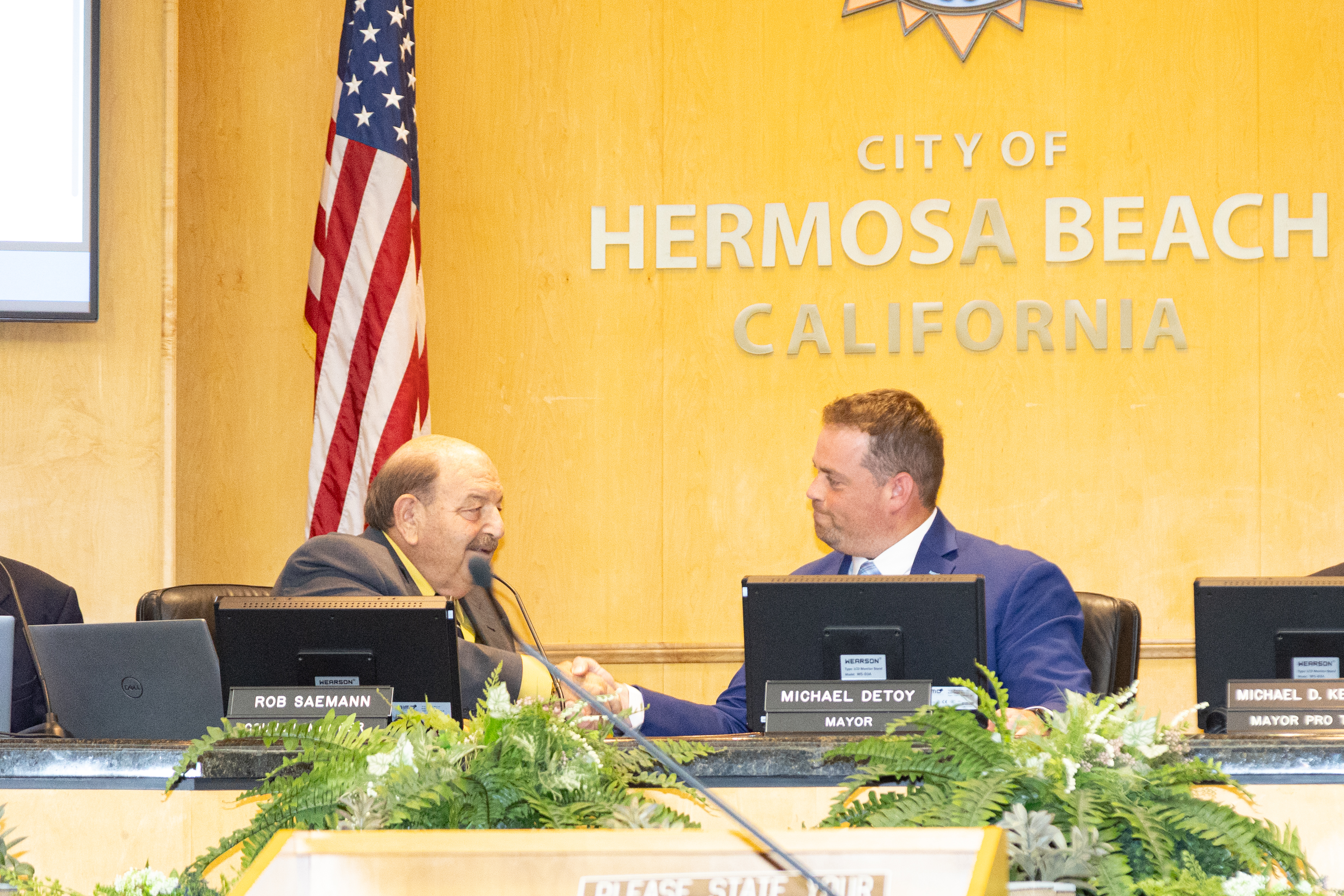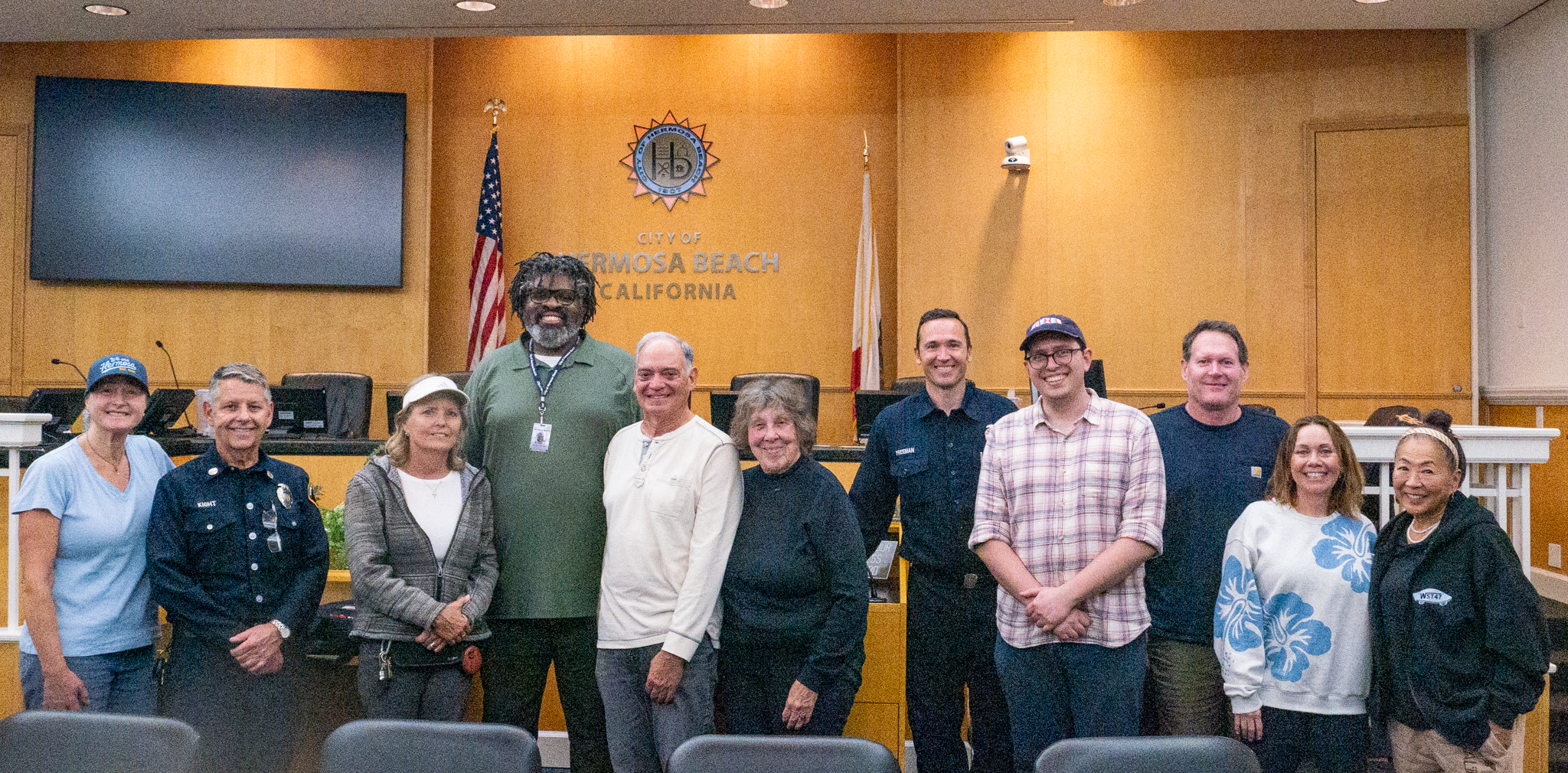by Kevin Cody
Tracey Tozser lives across the street from the Kelly Courts pickleball courts on Valley Drive in Hermosa Beach.
By Tozser’s calculations, she hears 900 pickleball pops per hour, per court, every day except Sundays and Mondays when the courts are closed.
“You do the math,” Tozser told the Hermosa Beach Parks and Rec Commission at its Tuesday, April 1 meeting.
Kelly Courts has four pickleball courts, but two have been closed since 2020, due to maintenance and safety issues. The city was sued by a player injured in 2019 when he collided with a wall behind one of the pickleball courts.
On the Commission’s Tuesday agenda was an estimated $800,000 plan to improve Kelly Courts’ pickleball, tennis and basketball courts. The plan includes reopening the two closed courts.
“Instead of solving the noise problem, you plan to add two more courts. You need to move these courts away from residences,” Tozser told the commission.
The Commission also heard from pickleball players wanting more courts. The two open courts are fully reserved each week by the city’s 271 pickleball subscribers, according to a staff report. Proponents estimated the number of Hermosa pickleball players is in the thousands.
Resident Geraldine Poon said she was “met by a smiling face” the first time she went to Kelly Courts to play pickleball, after moving to Hermosa eight years ago.
“Sports help build community. But I’ve not played in Hermosa in years. Manhattan and Redondo can build courts. What’s going on here? We’ve had two courts closed with weeds growing on them since 2020,” she said.
The pickleball ping beloved by players and maddening to neighbors results from the balls being made of plastic. They are similar to wiffle balls, but harder and louder.
Commissioner Barbara Ellman has spent several years researching quieter pickleball balls. She held up one of those balls, which she had proposed for use to Kelly Court players. The fuzzy, yellow ball had been left on her doorstep with a menacing slur written on it, which she hid from the audience.
She said a quieter pickleball is probably not an option because the ping is part of the game’s appeal.
Ellman also researched acoustic blankets for the fences surrounding the courts. They blocked air circulation, but not the sound, she said.
Public Works Commissioner David Grayson suggested the commission “decouple” the noise issue from the court improvements issue.
“You might find with four courts you have more flexibility. You could increase the number of courts to accommodate players, and reduce the hours of play to placate neighbors,” he said.
By a unanimous vote, the commission agreed to advise the City Council to proceed with the Kelly Courts improvements, and also to resurrect the player/neighbor stakeholder group to review the city’s pickleball policies.
Public works director Joseph SanClemente said the Kelly Court improvements, including reopening the two closed pickleball courts, could begin in October, and would take two to three months. But that assumes the City Council prioritizes the project on the city’s crowded capital improvements schedule. ER

